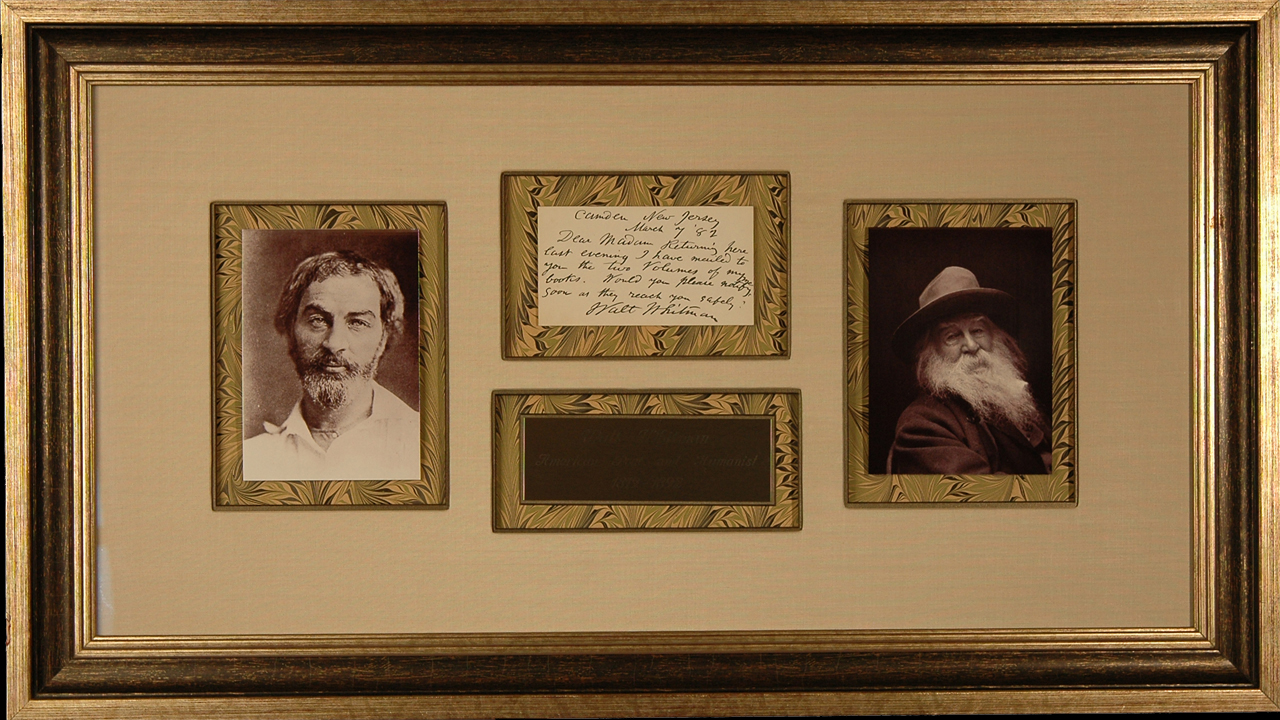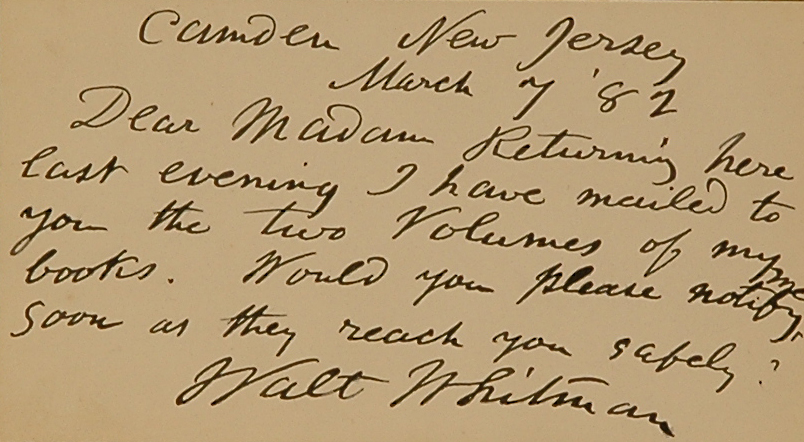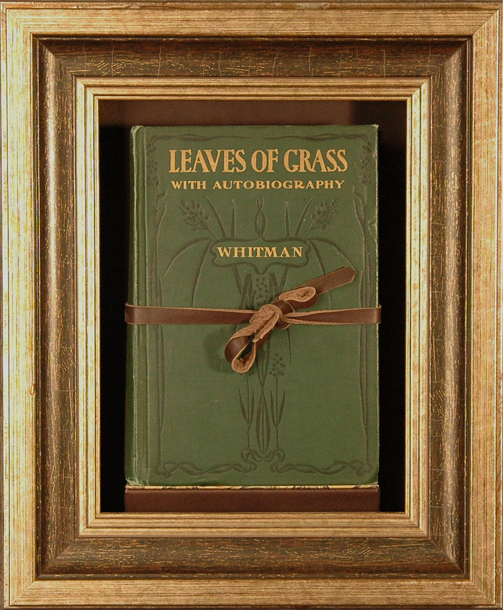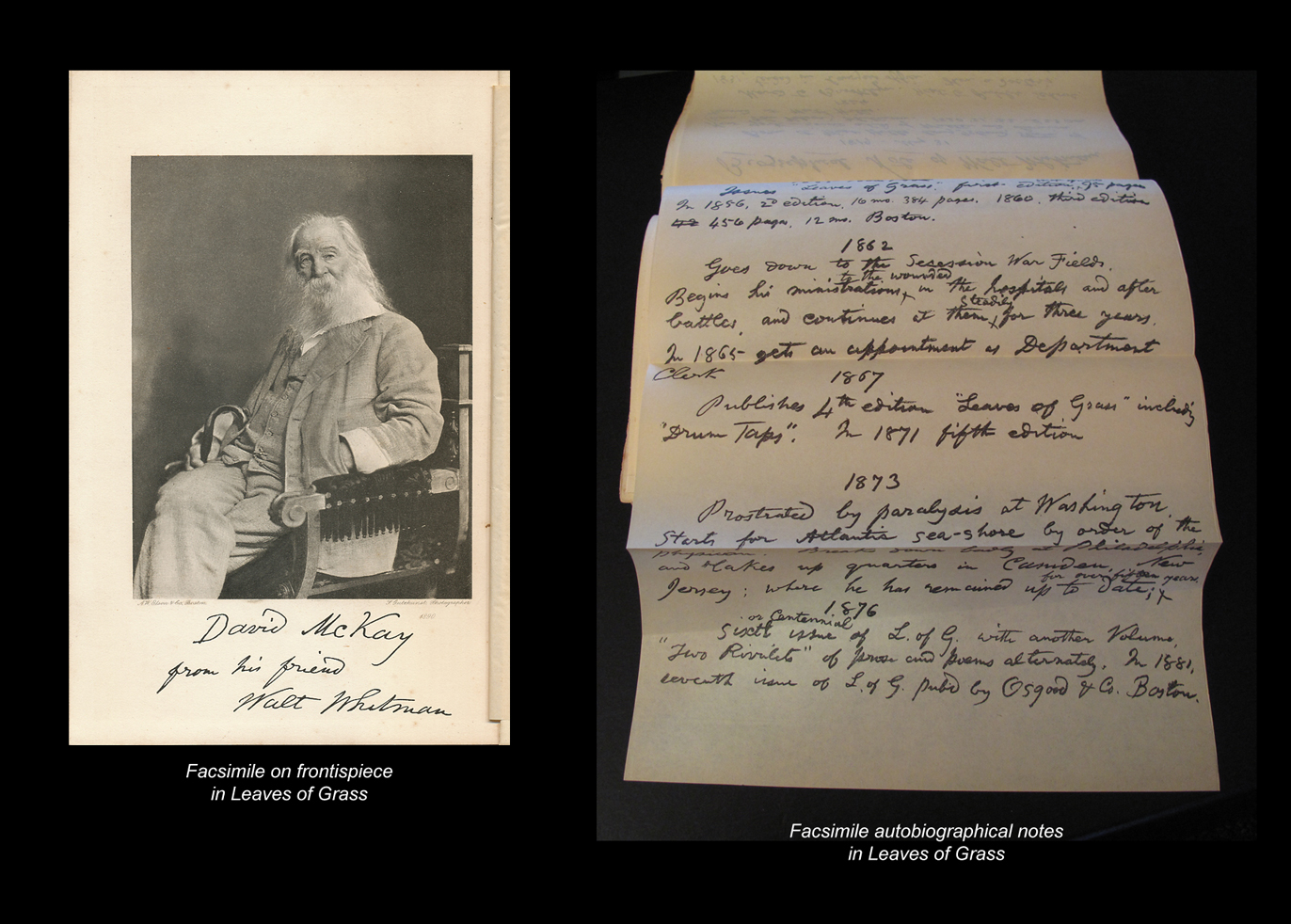Walt Whitman
Walt Whitman
Walt Whitman Autograph Letter Signed Framed with Leaves of Grass - 1882
Written from his home in Camden, New Jersey, on March 7, 1882, this Autograph Letter Signed was sent by Walt Whitman to Mrs. Vine Coburn, a member of a distinguished Maine family to whom he had sent two of his books. A scant five months earlier Whitman had just published the seventh edition of his extraordinary verse collection Leaves of Grass, a landmark in the history of American literature. The seventh edition of his most popular work is generally recognized as the definitive edition of his poems, published in October 1881 by James R. Osgood and Company of Boston. In full:
Camden, New Jersey
March 7, ‘82Dear Madam
Returning here last evening I have mailed to you the two Volumes of my books. Would you please notify me soon as they reach you safely?
Walt Whitman
According to The Walt Whitman Archive, the two-volume set was sent to Mrs. Coburn on March 7 following Whitman’s two-week stay with George and Susan Stafford, the parents of Harry Stafford, a young man Whitman met and intimately befriended in the mid-1870s. Harry’s parents were tenant farmers in Laurel Springs, outside of Glendale, near Camden, New Jersey. Harry invited Whitman to his family home, and Whitman immediately fell in love with the homestead and the intimate atmosphere. It reminded him of the Whitman family farm on Long Island that his parents had inherited from Whitman’s paternal grandparents, Jesse and Hannah Whitman. After the initial visit to the Stafford farm, Whitman was to return several times over the following years, often staying for weeks at a time and paying for his lodging in order to help with family finances.
While he was with the Staffords, Whitman found the time to work on Specimen Days, an autobiographical piece in which he, among other things, wanted to record his reactions to the war. In that memoir he turns from the horrors of war’s destruction to the comforts and joys of his adopted home. The Stafford family serves as a counterpoint to the disruption of the Civil War. At the farm he also planned much of the 1881 edition of Leaves of Grass. Whitman only stopped going to the farm when his friendship with Harry Stafford became strained, which made the visits uncomfortable. He later wrote that among the Staffords he felt both loved and able to love, and that they had in a real way saved his life after the horrors of the Civil War.
According to Walt Whitman: An Encyclopedia (New York: Garland Publishing, 1998) by J.R. LeMaster and Donald D. Kummings:
“The Osgood edition is notable both for its legacy of clustering and because for the first time Whitman’s book was being distributed by a mainstream publisher; Osgood’s authors included James, Howells, and Twain. Whitman’s book sold more than 1,500 copies before the publisher withdrew it after a district attorney objected to the sexual content and threatened to prosecute the company for selling obscene literature. The poet soon arranged to resume printing with Philadelphia publishers—first Rees Welsh, then David McKay when McKay acquired Leaves and other non-legal titles from Welsh, who specialized in law books…”
This handwritten note has been exquisitely framed with the finest museum-quality conservation materials, accompanied by two photos of Whitman—in youth and in old age—and a brass identity plaque. This ensemble measures 17″ x 31″, and is enhanced with a separately framed David McKay 1900 edition of Leaves of Grass With Autobiography measuring 13″ x 11″ including a wonderful facsimile of Whitman’s autobiography in his own hand, notable for the state of the frontispiece photograph, and the three inserted leaves of holographic manuscript reproductions throughout the book, which is in very fine condition and can be easily removed from its frame and read. The two make for a truly beautiful matching framed ensemble of art and literature-investment-quality heirlooms designed to provide lasting appreciation for generations.




